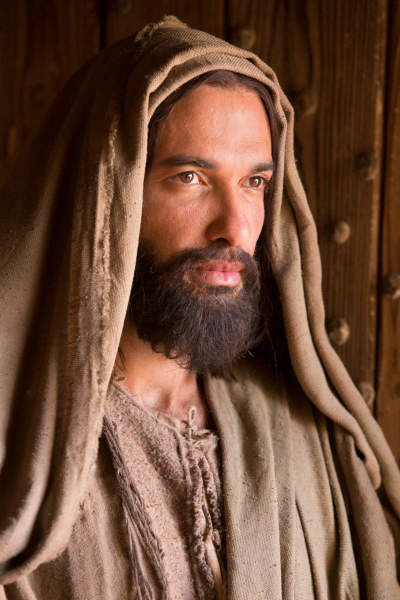Was Jesus a Nazirite?

A question some have about the life of Jesus was whether or not he was a Nazirite, and took a Nazirite vow.
In Old Testament Scripture Nazirites in ancient Israel were men and women who took a vow to live a holy and strict lifestyle.
In Numbers 6, for example, God tells Moses:
"If a man or woman wants to make a special vow, a vow of dedication to the Lord as a Nazirite, they must abstain from wine and other fermented drink and must not drink vinegar made from wine or other fermented drink. They must not drink grape juice or eat grapes or raisins. As long as they remain under their Nazirite vow, they must not eat anything that comes from the grapevine, not even the seeds or skins.
"'During the entire period of their Nazirite vow, no razor may be used on their head. They must be holy until the period of their dedication to the Lord is over; they must let their hair grow long."
Nazirites were also forbidden from touching the dead and should someone happen to die suddenly or unexpectedly in his presence they were required shave their heads and bring special offerings as a result of the defilement.
Samson in the book of Judges is arguably the most famous Nazirite in the Bible.
The word "nazir" means to "separate," according to Chabad.org, an online Orthodox Jewish resource.
However, the same Hebrew letters can also be read as "neizer," meaning "crown."
This is alluded to in Numbers 6:6-7, which explains that a Nazirite must not go near any dead body because the "symbol [crown] of their dedication to God is on their head."
Nazirite vows — which apply at all times — to abstain were usually for a set amount of time and if the length of the period was unspecified, it was assumed to be for 30 days.
Yet while there was no doubting that Jesus was the set apart and holy vessel through which salvation would come to earth, no Scriptural evidence exists that he was a Nazirite in the Old Testament sense.
He was however, from the Nazareth, whose residents were sometimes called Nazirites.
A cursory review of the life of Jesus shows that during his ministry he touched the dead and consumed wine.
Most famously, in Luke 7, Jesus dined with sinners that included "drunkards," as noted in His first miracle was turning water into wine at the wedding of Cana.
In Luke 8, when Jesus was on his way to minister healing to the daughter of the synagogue official, someone came from the official's home with the news that she had died and therefore Jesus should not be bothered.
Nevertheless, Jesus persisted and ended up taking the girl by the hand and commanding her to arise, which she did. A Nazirite would not have touched her.
When Jesus told those who were there with him mourning the loss of the girl that she had not died but was only sleeping, he was using an idiomatic expression of the day, as noted in a 2016 article examining the subject by Matt Slick, president and founder of the Christian Apologetics and Research Ministry.
"Many of those who sleep in the dust of the ground will awake, these to everlasting life, but the others to disgrace and everlasting contempt," he pointed out, quoting Daniel 12:2.
"We see that Jesus could not have been a Nazirite in the sense of Numbers 6:1-6 since He drank alcohol and approached the dead. He was, however, from Nazareth," Slick concluded.


























